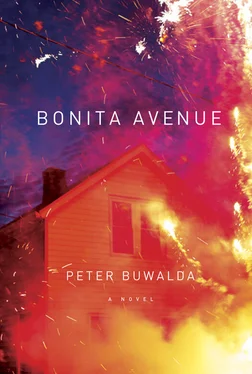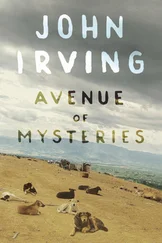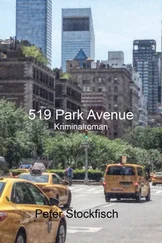“Your father is livid,” his mother said.
“Who takes off to Enschede on a gamble in the middle of the night?”
“You watch your mouth. That you didn’t think to phone us is bad enough. You could’ve been dead .”
From the booze, anyway. While the father was scouring the burning streets of Enschede, the missing son was whooping it up in Zaltbommel, partying like there’s no tomorrow, swigging glasses of pink champagne that don’t make you pee but do make you dance. While ambulances rode in and out of his neighborhood, Aaron joked to anyone who would listen that Roombeek was just like meat fried in Croma margarine—“it doesn’t spatter on its way to the platter.” When he lay down among the balloons and plastic beer glasses to do an imitation of Chinese firecrackers, I dragged him off the dance floor by his collar.
The next morning in the car, the radio stations were full of the news of the war zone we were heading toward, and once we got to Enschede we felt strangely apprehensive as we approached the edge of Roombeek. Like his father twelve hours earlier, we parked alongside the fence in the median of the Lasondersingel, there was no getting any closer. We smelled the sulfury odor of spent fireworks and gawked at the shingleless roofs and wrecked chimneys on houses that had only just survived the shock wave and blocked our view of the real crater. A twisted metal shipping container had bored into the grassy median; the only way it could have got there was in an arc over the houses. Across from the damaged Rijksmuseum, a man sat staring through the fencing from a folding fisherman’s stool. He told us that the fire had spared the Vluchtestraat. On the ground next to him was a thermos of coffee, but he wasn’t a rubbernecker: his own house, on the H.B. Blijdensteinlaan, was on the verge of collapse, according to the experts. We drove in silence to my student house in the city center. In the kitchen we listened to my housemates’ reports; one of them was driving our shared minivan through the Deurningerstraat at the time of the explosion and watched a block of cement crash through the roof of the car in front of her.
“Pity we weren’t home,” Aaron said with genuine regret in his voice. “This was not to be missed.”
They had flown Ennio by trauma helicopter to the Groningen Academic Hospital with severe burns and lacerations. It was my mother who mentioned it to me in passing a week after the fireworks disaster. We were standing in my parents’ laundry room, Aaron and I had already been staying there for a few days. She jammed the drum full of bedding, but in fact she was spin-drying me . The news sent me whirling, the blood draining from my veins.
Ennio Aaltink, a full-blooded Italian from the town of Forlì, ran, curiously enough, a British bodega in the Havenstraat passage, a long, narrow shop where as a first-year student I tended the cash register on Wednesday afternoons. The two of us helped German day trippers and the closest thing to Twents landed gentry negotiate the pots of Colman’s English Mustard and Haywards Pickled Onions, packs of Shredded Wheat, Honey Nut Cheerios, tins of baked beans and sausage, mushy peas, black peas, parched peas, and chutneys in a whole range of baby-poop colors. But most of the time my boss and I were alone.
From age sixteen to thirty Ennio had sailed around the world, his last stint as a ship’s cook, and he wholesaled in exotic stories. Intentionally or not, the things he told me always posed a dilemma, touched on issues about how a person could live. About what it’s like to be stuck on a tanker off the coast of Sakhalin when you’re depressed. What it’s like to very nearly marry an Angolese. Or if your captain orders you to smuggle thirty Filipino women. “Tell me, Joni, what would you have done?” He was forty-something, dark and handsome, with a nose as long as your finger and shining brown eyes that in fact were fingers too, with which he spent those Wednesdays poking at my unsullied little soul.
In charming Twents-Italian, where the words would unexpectedly pile up onto one another, he told me about his youth, about his crackpot parents who had drummed the magnificence of Benito Mussolini into Ennio and his brothers. Since Il Duce’s death, everything in Italy had gone to the corrupt, half-assed, democratic dogs, according to Ennio’s father, a tormented windbag who confused a difference of opinion with a blood vendetta and sold newspapers at Forlì Station from a sun-bleached kiosk that gradually became silted up with fascist diatribes, Duce hagiographies, and cardboard devotional cards depicting the intrepid leader on horseback. Every Sunday the family piled into their tomato-red Fiat and drove, fresh roses on the rear shelf, to Mussolini’s birthplace, not coincidentally a stone’s throw from Forlì, their excursion culminating at the family tomb where Ennio’s father, chin jutting forward, would recite one of Il Duce’s orations.
Some two years into his scuola media a history teacher laid the hard truth about Mussolini on Ennio. It took him a couple of weeks, but he finally realized, for good, that his parents worshipped a depraved, destructive, clownish megalomaniac, and that his father was not only stupid but probably evil himself. So he left. One night, while his younger brother lay sleeping behind him, he wrote a farewell note — I could just see it, a twenty-five-year-younger Ennio writing the letter, his letter of resignation, by candlelight. The next morning he hitchhiked to the harbor in Ravenna and boarded a cargo ship bound for India.
In exchange for such open-heartedness I told him, amid the jars of marmalade and stacks of felt-lined picnic baskets, about my own background, a story that paled next to his — back then, at least. Like everyone else, he asked if I still saw my real father, and when I told him I felt no need to, he reacted differently than I had expected. He told me I was stupid, slack, even heartless. That’s what he said. Cold. He, of all people! The man who for years had given Italy a wide berth, who had fathered, with a gym teacher from Boekelo, a spidery little daughter who didn’t even know she had Italian grandparents, a man who had even gone so far as to take his wife’s last name. “My father, he play fascist in Italian parliament,” he said. “That is because of the reason, Joni. Iffa you don’ have good reason to abandon family, then don’ do it.”
I liked him. For a year we chatted, we slid past each other, until one afternoon I threw my arms around that skinny torso of his. I pressed my breasts against his body, a body corseted by self-determination, by obstinacy, by wanderlust and the yearning for authenticity and independence (or so I thought in my love-smitten, puerile teenage head), by a principled unfetteredness, I thought too, because I assumed impermanence and itchy feet made that hard, sinewy exterior all syrupy on the inside. A man without roots. He lifted me up and kissed me. He wants me, I thought, all I need to do is ask and he’ll put this lousy little shop up for sale and whisk me away to New York or Rio de Janeiro.
He just laughed at me. No way! Didn’t I understand how much he loved that gym coach of his? And his daughter? “But,” he said, “if you promise not getting in love, we close-a the shop on Wednesday afternoons.” It was after six, I was already tallying up the cash register. “You think about it.” Well, thinking was the last thing I needed to do: the following Wednesday I raced to the bodega like a burning fuse. For a good two years we spent the weekly afternoon break on his black-velvet IKEA love seat back in the storeroom, a red-hot hour right in the middle of the week that rose like a bead of oil in a glass of water, and even once I hitched up with Aaron it floated there like a bubble on the surface of my daily existence. I still filled in there a few times a year, and every time he locked the front door at twelve o’clock sharp.
Читать дальше












